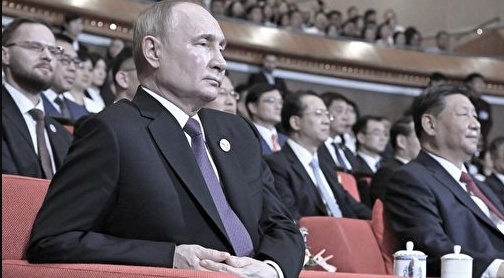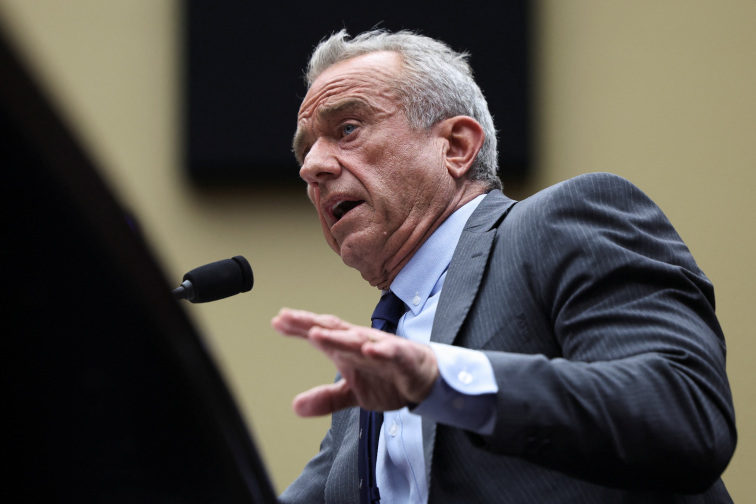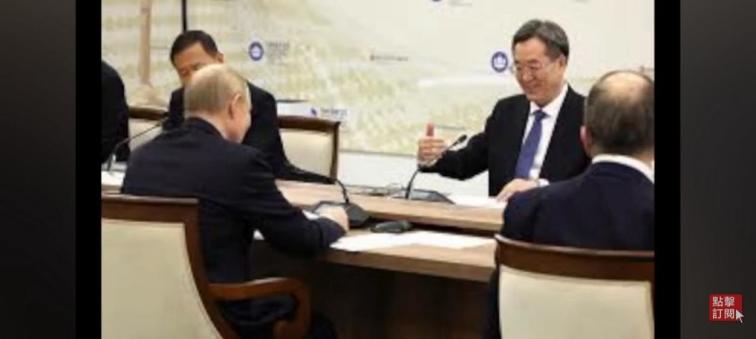On March 5, 2025, PLA delegates arrive at the Great Hall of the People in Beijing to attend the opening of the National People's Congress. (Photo by Kevin Frayer/Getty Images)
[People News] There has been widespread speculation in political circles about when the CCP’s Fourth Plenary Session will be held. Various leaks and analyses are circulating among the public. The long-overdue Fourth Plenary Session, delayed for nearly a year, is still nowhere in sight. Recently, independent political commentator Du Zheng published an article revealing a cryptic message from an anti-Xi political elder in Beijing: "Wait patiently. Change is coming in the fall. October will bring clarity." Du had previously mentioned in his writing that some junior officers in regional military commands are allegedly plotting a coup modelled after the Wuchang Uprising, waiting for the right moment to act.
On June 26, Shang Bao published Du Zheng’s opinion piece. Du disclosed that two independent sources provided him with inside information. The first was a well-known anti-Xi political elder in Beijing, who sent the cryptic message urging people to wait for change in the fall, with things becoming clearer by October. The second was the son of a deceased high-ranking retired military officer, who said, “The Beijing political scene has been very abnormal lately,” but declined to elaborate.
Independent commentator Chen Pokong, on his YouTube program, analysed that following the Beidaihe Meeting, the CCP is expected to convene the Fourth Plenary Session. Based on the phrase “October will bring clarity,” the session may be scheduled for October. Chen speculates that the CCP will let Xi Jinping finish the September 3rd military parade, and then he may retire or semi-retire.
Zhang Tianliang, host of the program Tianliang Argumentation, analysed that the “change” could refer either to Xi Jinping being dismissed at the Fourth Plenary Session or to a coup being launched to overthrow him. If it is indeed a coup, such a plan would not be publicly disclosed in advance, or else Xi would be alerted and retaliate. However, if Xi is to be removed at the Plenary Session, it would conflict with earlier rumours that the session would take place at the end of August.
On May 22, independent commentator Cai Shenkun revealed on his personal media program that, according to his sources, the Fourth Plenary Session of the Central Committee is scheduled to be held in Beijing from August 27 to 30. He speculated that the fact that the session has been scheduled implies that various factions within the Party have essentially reached a consensus.
Cai noted that there will be close attention to whether the session will bring major personnel changes, whether Xi Jinping will relinquish or transfer power. The direction of China’s political and economic future may become clearer in three months. So far, however, despite conflicting rumours overseas about who’s in and who’s out, there has been no definitive news.
In addition, on June 23, U.S.-based economist and writer Su Xiaohé revealed on his program that the Fourth Plenary Session would be held at the end of November or in early December.
He said Xi Jinping has finally agreed to step down, and the Party elders have made a few key decisions: 1. The Fourth Plenary Session will be held in late November or early December—possibly December 8. 2. The session will be secret and not publicised. The primary goal is a leadership reshuffle. Xi will relinquish his titles as State President and Chairman of the Central Military Commission. At the National People’s Congress in March next year, the new leadership lineup will be officially announced, completely replacing Xi’s team. Reportedly, this decision has already been communicated to current and retired members of the Politburo.
The timing of the Fourth Plenary Session remains elusive due to conflicting reports. But will it bring major personnel changes?
According to CCP norms, each Central Committee typically lasts five years and usually holds seven plenary sessions, each with a specific focus.
The Fourth Plenary Session is generally held in the third year of the term during the fall and typically involves major national policy decisions. In previous years, it has also seen changes in the Central Military Commission. For example, during the 16th Central Committee’s Fourth Plenary Session, Jiang Zemin resigned as Chairman of the CMC and was succeeded by Hu Jintao.
As the CCP’s highest governing body, the Central Committee wields key powers: electing Politburo members and the General Secretary, selecting the President, Premier, and NPC leaders, reviewing Politburo work reports, and making decisions on policies affecting the entire nation and Party. Any major personnel or policy changes must pass through the Central Committee to be considered legitimate.
However, Hu Ping, honorary editor-in-chief of Beijing Spring, summarised it well: “The CCP holds big meetings to resolve small problems, small meetings to resolve big problems, avoids meetings to resolve real problems, and holds meetings that resolve nothing.”
Currently, the chaos inside Zhongnanhai is no longer a secret. As Du Zheng noted, the son of a late senior military officer said, “The political scene in Beijing has been very abnormal lately,” but wouldn’t say more.
Du had previously written that although the rumoured uprising or coup plans are uncertain or may have changed, he believes that as long as the CCP exists, China will remain in a “Red Catastrophe.” Therefore, the regime must be overthrown.
(People News original)











News magazine bootstrap themes!
I like this themes, fast loading and look profesional
Thank you Carlos!
You're welcome!
Please support me with give positive rating!
Yes Sure!